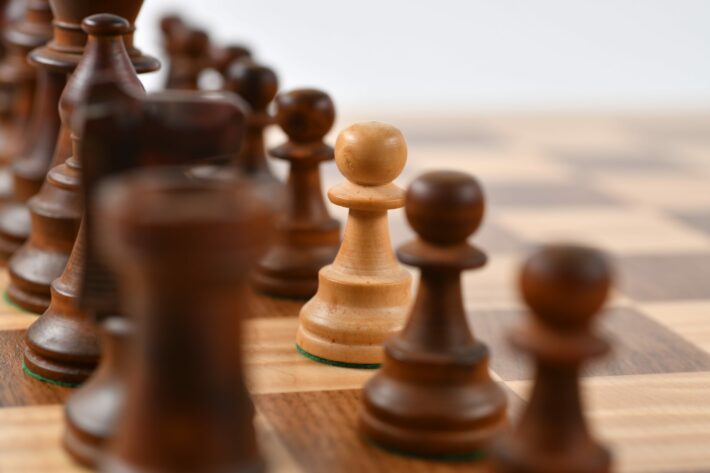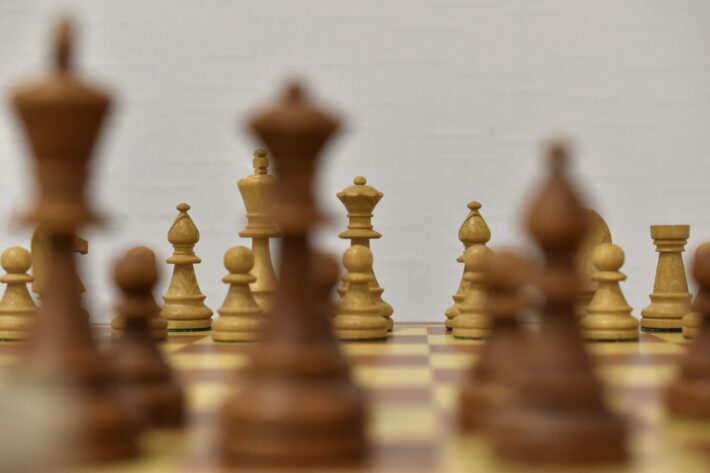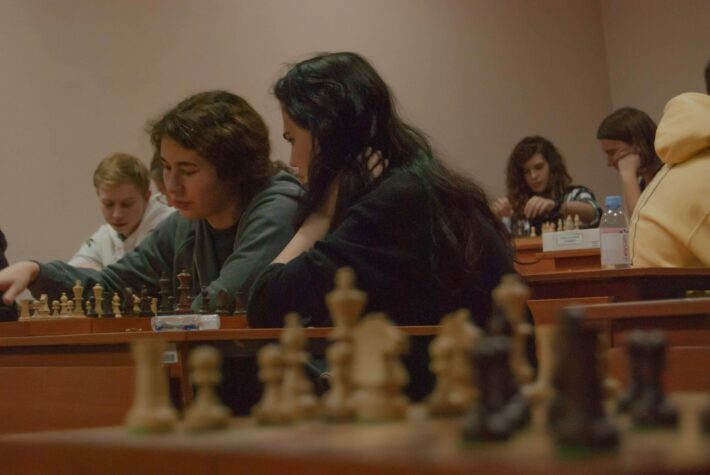Embark on a captivating journey as we delve deep into the mysterious origins of chess, one of the world’s most cherished and intellectually stimulating games. The quest to unravel the birth of this ancient game takes us back in time, traversing through centuries of history and engaging tales.
Through meticulous research and insightful analysis, we explore the enigma surrounding the invention of chess, seeking to unveil the brilliant minds behind its creation. Join us as we uncover the captivating narratives, ancient legends, and historical accounts that shed light on the birth of chess, captivating both enthusiasts and curious minds alike.
What is the historical background of chess?
Chess has a rich historical background that spans centuries. Believed to have originated in ancient India or Persia, chess eventually spread across continents, captivating diverse cultures. It gained prominence in medieval Europe, becoming a favored pastime among the nobility. The game’s strategic gameplay and intellectual challenges have contributed to its enduring popularity.
Chess even found its way into literature, art, and philosophy, leaving an indelible mark on human history. Understanding the historical context of chess allows us to appreciate its cultural significance and the remarkable journey it undertook to become the cherished game we know today.
Who can be credited with the invention of chess?

The exact inventor of chess remains a mystery, as the origins of the game are shrouded in antiquity. Various theories propose different individuals or cultures as potential inventors. Some attribute its creation to ancient Indian scholars who developed a precursor called “Chaturanga.”
Others suggest that Persian civilizations, with their game “Shatranj,” played a crucial role in its evolution. Regardless of the true inventor, chess is a testament to human ingenuity and has transcended borders and time, captivating minds worldwide with its strategic complexities and enduring appeal.
Are there any ancient civilizations associated with the origins of chess?
Several ancient civilizations are closely associated with the origins of chess. One of the earliest precursors, Chaturanga, is believed to have been played in ancient India around the 6th century. The Gupta Empire further developed the game, and it later spread to Persia, where it became known as Shatranj.
From there, it made its way to the Islamic world and eventually reached medieval Europe. These civilizations, with their unique contributions and adaptations, played integral roles in shaping chess into the captivating game it is today, showcasing the interconnectivity of ancient cultures through this strategic pastime.
Is there a specific timeline for the invention of chess?
Determining an exact timeline for the invention of chess is challenging due to its ancient origins and complex evolution. However, historical records suggest that chess-like games were played as early as the 6th century in India. By the 7th century, the game had reached Persia and subsequently gained popularity in the Islamic world.
It later made its way to Europe during the medieval period. While the precise dates may remain elusive, the gradual progression of chess across different regions provides insights into its development and the cultural exchanges that shaped its history.
What are the earliest mentions or references to chess in history?
The earliest mentions and references to chess can be found in ancient texts and historical records. In India, the Sanskrit epic “Mahabharata” (circa 4th century BCE) includes descriptions of a game resembling chess. Ancient Persian literature and the works of Persian scholars also make references to Shatranj, the Persian precursor to chess.
Greek and Arab texts from the medieval period further document the game’s existence and its popularity in various civilizations. These early mentions and references provide glimpses into the early stages of chess and its gradual integration into different cultures.
Were there any precursor games that influenced the creation of chess?
Yes, there were precursor games that influenced the creation of chess. Chaturanga, an ancient Indian board game, is widely considered to be one of the earliest precursors of chess. Its gameplay involved infantry, cavalry, elephants, and chariots, each with distinct movements.
Chaturanga’s strategic elements and the concept of capturing pieces likely influenced the development of chess. Other ancient board games, such as the Chinese game Xiangqi and the Persian game Shatranj, also played a role in shaping the rules and mechanics of chess. These precursor games laid the foundation for the birth of chess.
Are there any myths or legends surrounding the origins of chess?
Myths and legends abound when it comes to the origins of chess. One fascinating legend traces the game’s creation to an Indian king who, seeking to teach his unruly son the art of war, devised chess as a metaphorical battlefield.
Another legend tells of a wise sage who presented the game as a gift to a ruler, earning him great favor. While these stories add an element of mystique to chess’s origins, they are more symbolic than historical. However, they speak to the enduring allure of the game and its place in ancient folklore.
Were there different versions or variations of chess in different regions?

Yes, different versions and variations of chess emerged in different regions throughout history. Shatranj, the Persian version of chess, had its own set of rules and gameplay mechanics. In China, Xiangqi developed its unique board and pieces, emphasizing different strategic aspects.
Similarly, Japan introduced Shogi, which incorporates elements not found in traditional chess. Medieval Europe saw the evolution of the game into modern chess, introducing new rules like pawn promotion and castling. These regional variations demonstrate how chess adapted and evolved, incorporating cultural influences and reflecting the diversity of global gameplay.
Did chess spread globally from a particular region or culture?
Chess spread globally from its origins in India and Persia to various regions and cultures over time. Its introduction to the Islamic world and subsequent transmission through trade routes played a significant role in its dissemination. Arab scholars and traders brought chess to North Africa, Spain, and other parts of Europe during the medieval period.
From Europe, the game continued to expand across the globe through colonization and international exchanges. Chess’s universal appeal transcended geographical boundaries, making it a beloved pastime worldwide and a testament to the interconnectedness of human civilizations.
What were the original rules and gameplay mechanics of early chess?
The original rules and gameplay mechanics of early chess varied depending on the region and time period. Chaturanga, the ancient Indian precursor, featured four types of military units with distinct movements. Shatranj, the Persian version, introduced additional pieces and specific rules, such as pawn movement restrictions and the capturing method.
Over time, as chess evolved and spread, rules such as pawn promotion, castling, and en passant were added, enhancing strategic possibilities. While the specifics of early chess rules may differ, they all shared the fundamental concept of capturing opponents’ pieces to achieve victory.
Are there any ancient artifacts or writings that provide insights into the origins of chess?
Yes, ancient artifacts and writings provide valuable insights into the origins of chess. For instance, ancient Indian manuscripts and sculptures depict board games resembling chess. Persian miniatures from the medieval period illustrate scenes of Shatranj gameplay.
Additionally, historical texts and treatises, such as the Arab scholar al-Adli’s “Book of Chess,” offer detailed descriptions of early chess rules and strategies. These artifacts and writings provide tangible evidence of chess’s existence and evolution, allowing us to reconstruct the game’s origins and trace its development across different civilizations.
Can the invention of chess be attributed to a single individual or group?
The invention of chess cannot be attributed to a single individual or group with certainty. The game’s origins are deeply rooted in ancient history and emerged through cultural exchanges and developments over time. While some theories suggest specific inventors or cultures, the lack of definitive evidence makes it challenging to pinpoint a singular origin.
Chess’s creation likely involved the contributions of numerous individuals across different civilizations, with each iteration building upon earlier versions. Thus, the birth of chess represents a collective effort and a testament to the ingenuity and creativity of humanity.
How did chess evolve and transform over time?
Chess underwent a fascinating evolution and transformation throughout history. From its early Indian and Persian predecessors, it gradually incorporated new rules and strategies. As it spread to different regions, cultural influences shaped the game, resulting in unique variations.
The modern form of chess emerged during the Middle Ages in Europe, with rule refinements and the introduction of new pieces. Further developments, such as international competitions and the advent of computer chess, continued to shape and refine the game. The evolution of chess mirrors the evolution of human civilization, adapting and thriving in response to changing times and societal needs.
This table provides valuable data on how chess has evolved and transformed over time.
| Time Period | Evolutions and Transformations | Impact |
|---|---|---|
| Ancient India (6th century BCE) | Chaturanga – precursor with infantry, cavalry, elephants, and chariots | Foundation for early chess, strategic elements |
| Persian Empire (6th to 7th century CE) | Shatranj – introduced new pieces, specific rules like pawn restrictions | Spread to the Islamic world and influenced medieval European chess |
| Medieval Europe (11th to 15th century) | Introduction of modern chess – pawn promotion, castling | Increased strategic possibilities, the rise of chess as a noble pastime |
| Renaissance and Enlightenment (15th to 18th century) | Chess is a symbol of intellect, an educational tool, and chess clubs | Integration into cultural and intellectual pursuits, societal impact |
| Modern Era (20th century to present) | International competitions, computer chess, advanced chess strategies | Globalization of the game, technology-driven advancements |
Were there any cultural or societal influences on the development of chess?
Cultural and societal influences played a significant role in the development of chess. As the game spread across different regions, it assimilated elements from diverse cultures. For example, Islamic scholars in the medieval period added scientific and mathematical concepts to chess, influencing its strategic depth.
European societies during the Renaissance era embraced chess as a symbol of intellect and employed it as a tool for education and socialization. Cultural practices and philosophies, such as the concept of chivalry in medieval Europe, also found expression in chess. These influences enriched the game and contributed to its enduring legacy.
What are the prevailing theories or scholarly opinions regarding the origin of chess?
Scholarly opinions regarding the origin of chess vary, reflecting the complexity and lack of definitive evidence. While many theories suggest Indian and Persian origins, no consensus has been reached. Some scholars propose the theory of independent invention, suggesting that chess-like games emerged in different regions simultaneously.
Others emphasize the transmission and transformation of the game through cultural interactions. Research continues to uncover new insights, and ongoing archaeological discoveries and historical analysis contribute to the evolving understanding of chess’s origins. Exploring these prevailing theories allows us to appreciate the multifaceted nature of chess’s birth and the ongoing quest to uncover its true origin.
In conclusion
The origins of chess remain a captivating enigma that has fascinated historians, scholars, and enthusiasts for centuries. Through meticulous research and analysis, we have explored the rich historical background and evolution of this ancient game. From its early precursors in ancient India and Persia to its spread across different regions and cultures, chess has undergone transformative changes, incorporating new rules, strategies, and cultural influences along the way.
The game’s enduring popularity and universal appeal serve as a testament to its timeless allure and intellectual challenges. As we continue to uncover the mysteries surrounding its invention, chess stands as a remarkable testament to human creativity and the power of strategic thinking. Whether you’re a seasoned player or simply curious about its origins, the captivating journey into the genesis of chess offers valuable insights into the interconnectedness of human civilizations and the indelible mark this ancient game has left on our history and culture.





